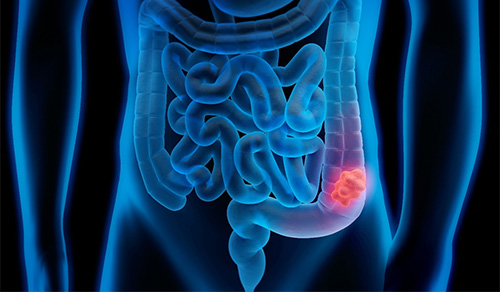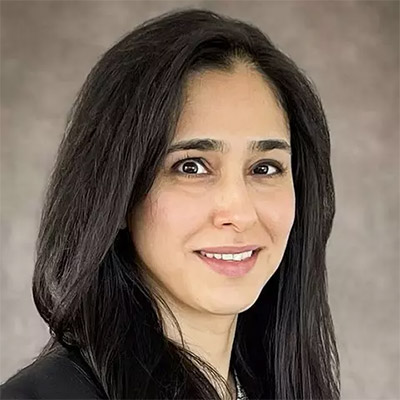
Dr. Mehraneh Jafari
Starting adjuvant chemotherapy for nonmetastatic colon cancer at the time of surgery is a safe and feasible approach to treatment, shows a recent study in the journal, Clinical Colorectal Cancer. Conducted at NewYork-Presbyterian/
“The goal is to avoid delays in treatment to not only potentially improve survival but also to improve patients’ quality of life,” says the study’s lead author, Mehraneh Dorna Jafari, MD, Chief of Colorectal Surgery at NewYork-Presbyterian Brooklyn Methodist and Associate Professor of Surgery at Weill Cornell Medical College. “From a patient perspective, the treatment was very well received.”
A paradigm shift
New treatment approaches for early stage colon malignancies are overdue. “The treatment for colon cancer has been the same for the past 30 years or so,” Dr. Jafari says. “Despite improvements in surgery and imaging, we have basically made no strides in improving survival. Even among stage I patients, there is a 10% recurrence rate, which is very high.”

Illustration of colon cancer
Up to now, patients have typically waited six to eight weeks to allow the body to heal from surgery before initiating chemotherapy. Now such wait times make less sense.
“Everybody thinks that you shouldn't start chemotherapy for six to eight weeks postoperatively,” says Dr. Jafari. “But now we're doing these incredible minimally invasive procedures, where the incisions are really small. We're treating the patients the same way we've been treating them when we used to do big open operations.” Evidence shows that six to eight days may allow for sufficient healing before adjuvant treatment, she adds.
Delaying chemotherapy is potentially deadly. Longer waits are linked to a higher risk for relapse, with every additional two-week wait worsening survival outcomes, Dr. Jafari says.
“Surgery is a traumatic event and it causes immunosuppression,” Dr. Jafari says. “The thought is that it puts patients in a vulnerable position where if systemic disease exists, it's more likely for those tumor cells to stick to organs and grow. Systemic treatment (with chemotherapy) kills the free-floating cells.”
Coordinated care
Multidisciplinary care is key to the study protocol. Treatment delays often result from logistical challenges like coordinating with different doctors.
“It's not mandated that we discuss every colon cancer at a tumor board where everybody to look at the scans, discusses the case between surgeons and oncologists, and everybody comes up with a plan at once,” says Dr. Jafari.
Starting chemotherapy at the time of surgery requires that physicians plan and work in sync, which benefits patients. “Getting a cancer diagnosis is not easy for anyone and going through that process is very overwhelming,” Dr. Jafari says. “Just knowing that there's been a group discussion and that there's a plan makes a huge difference.”
The team also found that study patients completed treatment more quickly, reducing anxiety and allowing them to get back to their lives sooner. Patient advocacy groups have taken notice of the study and given the protocol their seal of approval.
“As surgeons or medical oncologists, our number one goal and priority is the survival of the patient,” says Dr. Jafari. “We want our patients to live and we want to cure them. But sometimes we lose sight of what all of our treatment does to their quality of life.”
Ongoing research
The study involved 20 patients with stage I, II and III colon cancer that had not metastasized. Patients received immediate adjuvant chemotherapy starting at the time of surgery and those with high-risk stage II and stage III cancer received the first dose of standard adjuvant chemotherapy around 14 days after surgery. There have been no complications or adverse effects, Dr. Jafari says.
A Phase II study is planned to see if safety and feasibility is maintained in a larger group of patients. Further research will be needed to assess whether the novel protocol improves survival, quality of life and financial toxicity. But the study is already changing practice.
“This is a phase one trial in a select group of surgeons’ hands,” says Dr. Jafari. “But many people feel strongly that this is going to work in every surgeon’s hands. It's just a matter of changing the mentality and the dogma that you have to wait to get treatment started. We’ve already changed the landscape.”



